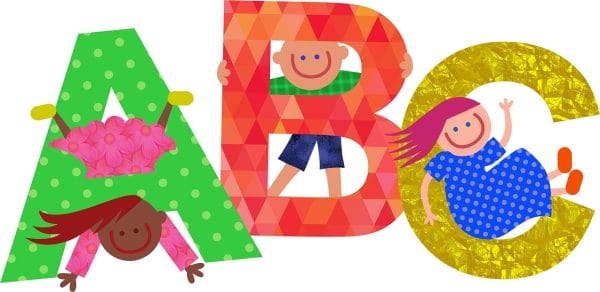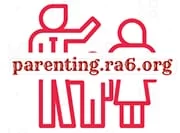Start Right Preschool: How to Choose the Right Preschool for Your Toddler
When it comes to giving your child a head start in life, choosing the right preschool can make all the difference. Preschool for toddlers is more than just a place for children to spend a few hours away from home. It’s an environment that nurtures their curiosity, shapes their social skills, and lays the groundwork for a lifetime of learning.
This article will provide you with the essential information you need to choose the best preschool for your child, taking into account various factors including the appropriate age to begin, the benefits of mixed age classes, and how to determine which preschool is the perfect fit for your family.

Table of Contents
Understanding the Importance of Preschool for Toddlers

Before diving into how to choose a preschool, it’s important to understand why preschool is so beneficial for young children. Studies have shown that children who attend high-quality preschool programs are more likely to succeed academically and socially throughout their schooling years. They develop important cognitive and social skills, such as problem-solving, self-regulation, and the ability to work with others. This early education sets a solid foundation for their future learning and development.
When to Start Preschool

Deciding when to start preschool is a significant decision for parents. While there’s no one-size-fits-all answer, most experts agree that children are ready for preschool between the ages of 2 and 4. This readiness depends on the individual child’s development, both emotionally and socially, as well as their ability to participate in a structured environment for a portion of the day. It’s essential to assess your child’s readiness and comfort with being apart from you before enrolling them in a preschool program.
How to Choose the Right Preschool for Your Toddler

With numerous options available, selecting the right preschool can feel overwhelming. Here are some steps to guide you through the process:
- Research and Referrals: Start by researching local preschools and seeking referrals from other parents, your pediatrician, or local parenting groups.
- Visit and Observe: Schedule visits to potential preschools to observe the environment, teaching methods, and interactions between staff and children.
- Curriculum and Philosophy: Inquire about the school’s curriculum and educational philosophy. Ensure it aligns with your values and expectations for your child’s learning.
- Staff Qualifications and Child-Teacher Ratio: Check the qualifications of the teaching staff and the child-to-teacher ratio to ensure your child will receive enough attention and care.
- Location and Hours: Consider the preschool’s proximity to your home or workplace and whether its operating hours fit your schedule.
- Safety and Cleanliness: Evaluate the safety measures and cleanliness of the facility. A safe and clean environment is crucial for your child’s well-being.
Taking these steps will help you narrow down your choices and find a preschool that meets your child’s needs and your family’s expectations.
Mixed Age Preschool Pros and Cons

One factor to consider when researching preschools is whether they offer mixed age classes. Mixed age preschools group children of different ages together, rather than separating them strictly by age. This approach has its advantages and disadvantages:
- Pros:
- Older children can serve as role models and help younger ones learn new skills.
- Mixed age groups can foster a sense of community and belonging.
- Teachers can tailor learning experiences to individual needs rather than a one-size-fits-all curriculum.
- Cons:
- Older and younger children may have different social and emotional needs that can be challenging to address in a mixed group.
- Some parents worry that older children might not be sufficiently challenged.
- It may be harder for children to find peers at the same developmental stage.
When considering a mixed age preschool, reflect on your child’s personality and learning style to determine if this environment would be beneficial for them.
Which Preschool Is Right for My Child?

Finding the right preschool for your child is a personal decision that depends on your child’s unique needs and your family’s circumstances. Consider your child’s temperament, interests, and how they interact with others. Some children might thrive in a play-based, child-centered environment, while others might do better with a more structured, academic approach. Additionally, think about practical considerations such as the school’s location, cost, and schedule.
Ultimately, the right preschool for your child is one where they feel safe, valued, and excited to learn. Trust your instincts as a parent, and if something doesn’t feel right about a particular school, don’t hesitate to explore other options.
Case Studies: Success Stories of Start Right Preschools

To illustrate the impact of a quality preschool experience, let’s look at some case studies:
- A study from the National Institute for Early Education Research found that children who attended high-quality preschools had better math and reading skills upon entering kindergarten than those who did not attend preschool.
- Research from the Perry Preschool Project showed long-term benefits for children who attended preschool, including higher rates of high school graduation and lower rates of crime.
- A local “start right preschool” program that implemented a mixed age curriculum reported that children demonstrated improved social skills, such as empathy and cooperation, and were better prepared for the transition to kindergarten.
These examples highlight the positive outcomes that can result from enrolling your child in a preschool that prioritizes early education and development.
Frequently Asked Questions

What should I look for in a good preschool?
Look for a preschool with a warm, friendly atmosphere and a staff that is caring, qualified, and committed to the children’s development. Make sure the school has a clear curriculum, a safe environment, and a good reputation. It should also have an appropriate teacher-to-child ratio and encourage parental involvement.
How do I know if my child is ready for preschool?
Your child might be ready for preschool if they can handle being away from you for short periods, show interest in interacting with other kids, can follow simple instructions, and manage basic self-care like washing hands or using the toilet. Readiness varies greatly among children, so consider your child’s individual temperament and developmental stage.
How important is the location of the preschool?
Location can be very important for convenience and your daily routine. Choosing a preschool close to home, work, or on your daily commuting route can make drop-offs and pick-ups easier and reduce the stress of rushing to arrive on time.
What is the best teacher-to-child ratio for a preschool?
The best teacher-to-child ratio can depend on the age of the children and the specific regulations in your area. For toddlers, a general guideline is one teacher for every 6-10 children, but lower ratios like 1:5 or even 1:4 are ideal since younger children need more attention and care.
Should the preschool’s education philosophy match my parenting style?
While it’s not essential, it is beneficial if the preschool’s educational philosophy aligns with your parenting style. This creates consistency for your child and ensures that the school reinforces the values and approaches to learning that you consider important.
How do I check if a preschool is safe and clean?
Visit the preschool unannounced, if possible, to observe the cleanliness and safety measures firsthand. The facility should be well-maintained, with clean classrooms, safe play equipment, and secure premises. Also, ask about their policies on background checks for staff and their emergency preparedness plans.
Can I observe a class before enrolling my child?
Most preschools will allow you to observe a class either as part of a scheduled tour or by appointment. Observing a class can give you insights into the teachers’ interaction with the children, the daily routine, and the overall learning environment.
What should I ask about the preschool’s curriculum?
Inquire about what a typical day looks like, the educational approach they use, and how they balance play with learning. Ask how they support social, emotional, physical, and cognitive development, and whether they have a specific focus, such as language immersion or STEM.
How can I get feedback from other parents about a preschool?
You can ask the preschool for references, or reach out to parent groups, both online and in your community. Social media groups, local forums, and word of mouth can provide valuable insights from parents who have children attending the preschool.
What if my child has special needs?
If your child has special needs, ask the preschool about their experience and ability to accommodate these needs. Find out if they have trained staff, the necessary facilities, and a curriculum that can be adapted to support your child’s development. It’s crucial that the preschool is equipped to provide an inclusive learning environment.
Conclusion: Key Takeaways for Choosing a Preschool

Choosing the right preschool is a critical decision that can shape your child’s educational journey. Remember to:
- Begin researching early to find the best options available.
- Visit potential preschools to get a sense of the environment and philosophy.
- Consider mixed age settings and their potential benefits and drawbacks.
- Reflect on your child’s needs and how different preschools might meet them.
- Trust your instincts and don’t settle for a preschool that doesn’t feel right.
In conclusion, the “start right preschool” for your child is one that supports their growth and development in a nurturing environment. By taking the time to research and choose carefully, you can ensure that your child’s first educational experience is a positive and rewarding one.
Originally posted 2023-06-16 10:13:02.
